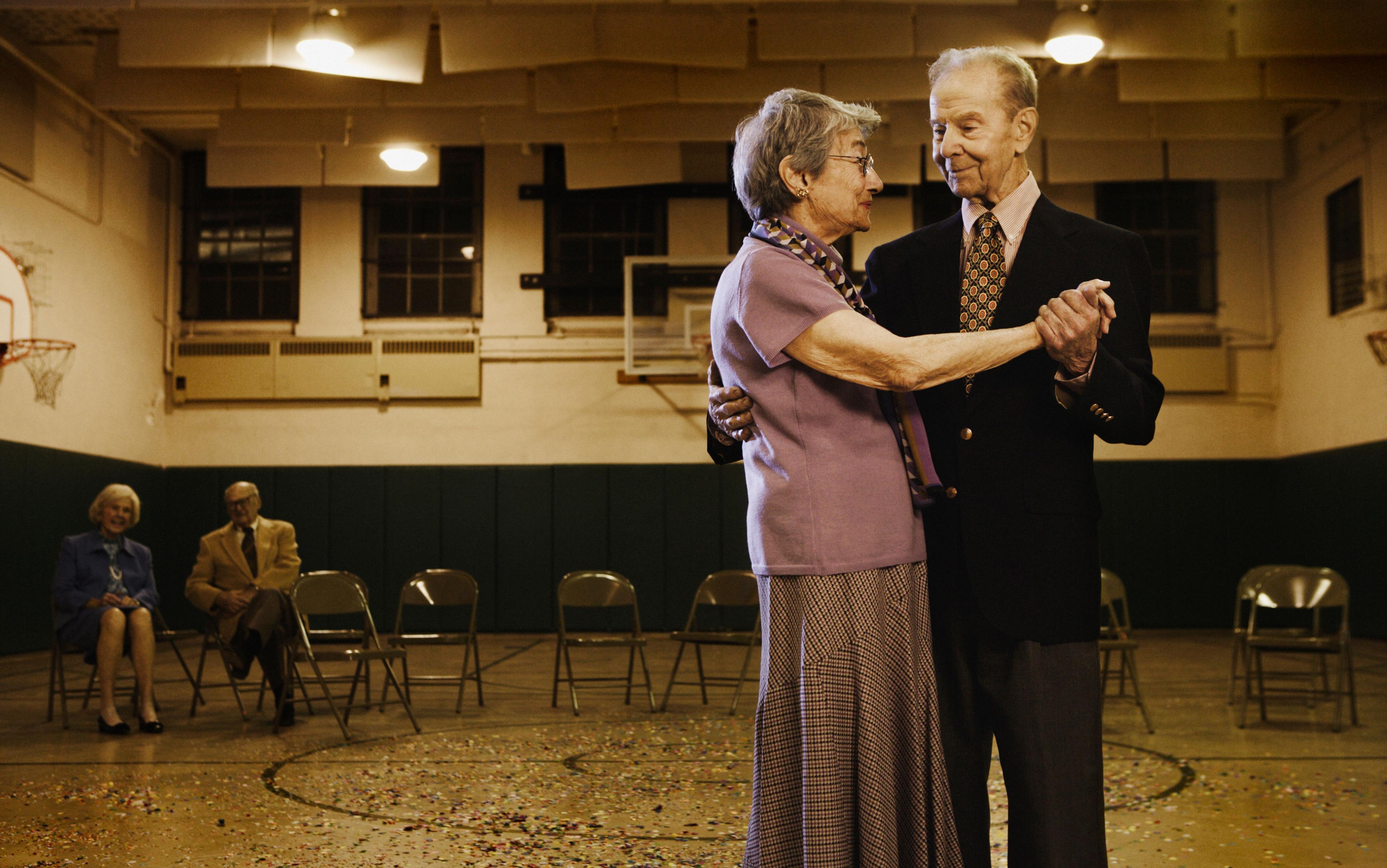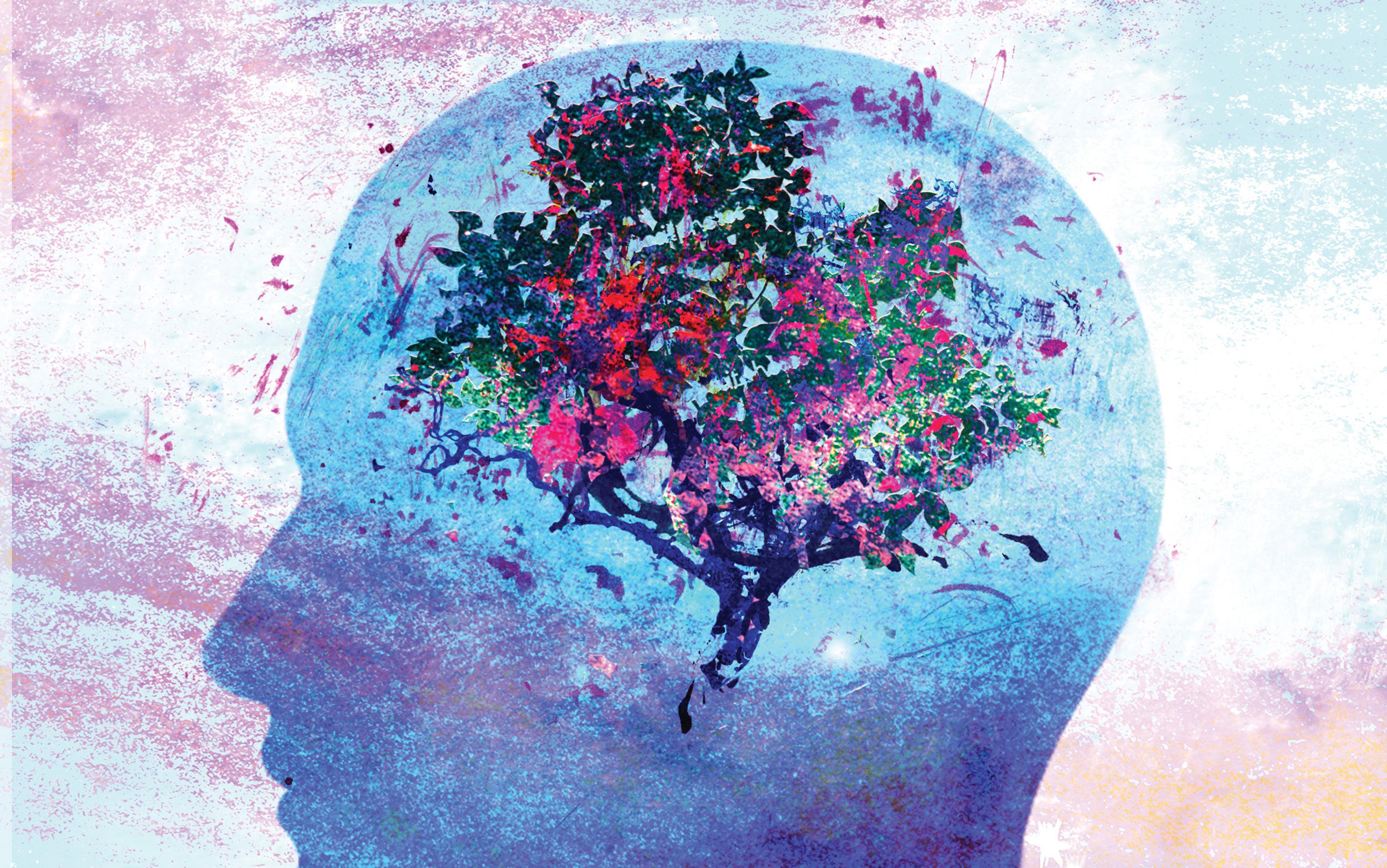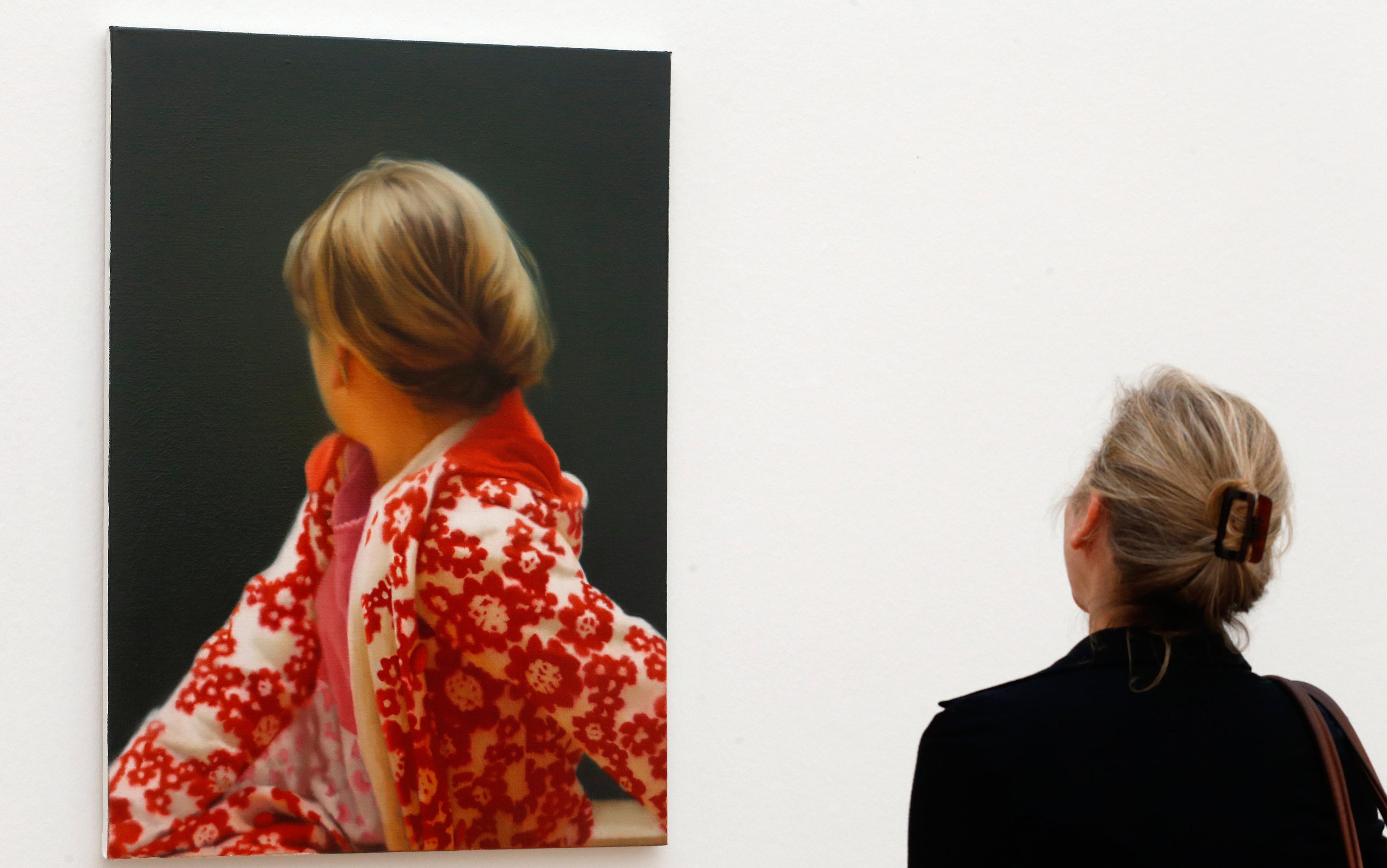‘On my good days, I can almost pass for a normal person. On my bad days, I feel like I cannot find myself… I don’t know who I am and what I am going to lose next.’
So says Alice Howland, as played by Julianne Moore, in the film Still Alice (2014). A professor of linguistics in her mid-50s, Howland is trying to explain to her youngest daughter what it feels like to have Alzheimer’s disease. Moore’s Oscar-winning portrayal of her struggle against the disintegration of her self is the latest in a string of outstanding female performances – Judi Dench as Iris Murdoch in Iris (2001), Meryl Streep as Margaret Thatcher in The Iron Lady (2011) – to explore the most troubling aspect of dementia: what happens to a person’s identity? Howland remains the same person and yet is clearly no longer the person she once was. And where is the real Alice Howland to be found?
Dementia is caused by a range of medical conditions (the best-known being Alzheimer’s) that eat holes in the short-term memory of sufferers and degrade their capacity to process new information. Memory becomes like a flickering signal from a faraway shortwave radio station: people can do and say things, then promptly forget them, and then do and say them again. They can no longer read obvious social cues. They become easily distressed as a thickening fog descends upon them, causing them to lose track of everything. As the disease progresses, only fleeting glimpses of the once capable person can be seen; for the rest of the time, everyone is stuck with an uninvited guest. Eventually, the sufferer fails to recognise even loved ones.
Dementia raises deeply troubling issues about our obligations to care for people whose identity might have changed in the most disturbing ways. In turn, those changes challenge us to confront our philosophical and ethical assumptions about what makes up that identity in the first place. Everyone touched by the disease goes through a crash-course in the philosophy of mind.
Philosophy is not of much practical use with most illnesses but in the case of dementia it provides insights about selfhood and identity that can help us make sense of the condition and our own reactions to it. Broadly speaking, there are two accounts of how personal identity is formed and sustained. Each has different implications for how we understand dementia and so seek to care for people with it.
Our commonsense understanding of the self has been dominated by an individualistic idea that goes back to René Descartes and John Locke in the 17th century. Descartes found certainty within himself – ‘I think, therefore I am.’ The inner, mental life of the self was also grounds for knowing our experience to be real, and that we were not dreaming. Locke, for his part, identified the self with the ordered flow of sense experiences that the mind recorded. That tradition, more recently updated by the British philosopher Derek Parfit in books such as Reasons and Persons (1984), argues that identity and memory come from the same place: a psychological connectedness and continuity maintained inside our heads. Selfhood hinges on our ability to order memory, and connect a set of experiences to form a coherent autobiography of who we were and how we became the person we are now. The theory has implications for dementia, because dementia destroys the temporal binding that sustains our identity.
According to Baldwin van Gorp of Leuven University in Belgium, who studies how the media reports dementia, this individualistic, inward looking, memory-based account of identity is the default way that dementia is framed in most public debates. That framing carries clear implications for how we might hold dementia at bay: keep your brain as fit as possible; do lots of physical and mental exercise. It explains why dementia self-help books lean so heavily on the provision of external supports: Post-It notes and other visual reminders that jog the memory. Google – that instant memory-jogger – might already be helping to forestall the dependency created by dementia. Before long, no doubt, little robots will accompany us to make sure we remember to take our pills and flush the toilet.
This idea that identity is based in memory underpins the excitement that greets the brain implants being developed by US firms such as Medtronics and Boston Scientific as potential ‘cures’ for Alzheimer’s, and the BRAIN initiative founded in 2013 by the US President Barack Obama to fund university research into treatments for common brain conditions.
Since 1997, movement disorders such as tremors have been treated in the US with electronic implants that provide deep brain stimulation (DBS). More recently, neurological conditions such as Parkinson’s and epilepsy have also been approved for treatment with DBS. Theodore Berger, a biomedical engineer at the University of Southern California in Los Angeles, and Robert Hampson, an associate professor of pharmacology and physiology at Wake Forest School of Medicine in North Carolina, are drawing on that success to design implants that help people maintain their memories. In 2013, they announced with colleagues that in experiments on rats and monkeys they had found a way to artificially stimulate the hippocampus so it might recall memories that would otherwise be lost. Berger has created complex mathematical models to better understand how the brain’s electrical impulses encode memory so that the process can be mimicked electronically; Hampson imagines a time when a malfunctioning hippocampus might be bypassed or at least supplemented by brain implants.
memory becomes the site of a sharp new social divide: those with a firm grasp on the recent past lord it over those without
Internally enhanced by electronic memory aids, we might manage to look quite normal from a distance, but only by becoming a different species: technologically reconstituted humans. The usual dystopic spectres then hove into view, with memory becoming the site of a sharp new social divide: those with a firm grasp on the recent past coming to lord it over those without.
Alice Howland’s dementia was confirmed, like most people’s, when she failed a simple memory test set by her doctor. The memory test is practically a SAT test for the over-75s, who will be separated into two lines: those who can recall who the President is and those who cannot. People lucky enough to have a fully functioning memory find themselves thrust into the roles of carers and keepers, controllers and jailers: it will not be pleasant for them either.
The memory-based account of identity is powerful, deeply rooted and dangerously partial. It will direct us to potential memory cures – a mixture of implants and drugs – that will almost certainly disappoint as much as they excite. Memory is not created in a little box in the brain, but by diffuse and dispersed circuits of neurons firing in concert. Someone with dementia would need more than an implant: they would need their brain refreshed and rewired. And still the nagging question would remain: are they the same person?
A more promising way forward might be drawn from ideas about personhood that sit within the continental philosophical tradition that includes Martin Heidegger, Hans-Georg Gadamer and Maurice Merleau-Ponty. At the risk of simplification, philosophers in this tradition contend that who we are depends not simply on our self-reflective ability to marshal our memories but, crucially, on our relationships with other people and how we are embedded in the world around us. Heidegger argued we were ‘beings-in-the-world’, not just in our own heads. It suggests that the question ‘Who are you?’ cannot be answered by delving within ourselves, but by looking outwards to understand how we relate to others.
You are a husband or wife, mother or father, son, friend, colleague, lover, writer, cook, teacher, or plumber. And your identity is secured through mutual recognition or, as the Scottish philosopher Alasdair MacIntyre puts it in After Virtue (1981): the story we tell about ourselves in our own heads has to line up with the stories that other people tell of us.
The Canadian philosopher Charles Taylor argues that shared language and culture play a critical role in creating this sense of rapport, by constituting a common vantage point from which we view the world together. There is a Heideggerian core to Taylor’s argument, in that it presupposes that all understanding depends on taken-for-granted pre-understandings: pouring coffee into a cup, for example, depends on our understanding of both ‘coffee’ and ‘cup’ and what our project for them entails. This self-reinforcing account echoes Heidegger’s ‘hermeneutic circle’, which implies that we create meaning together from shared pre-suppositions about what the world is like, and these are reinforced as we converse.
Dementia is troubling because, at the same time as it erodes someone’s memory, it also eats away at this capacity to create shared meaning. If someone cannot remember not just where the milk bottle goes, but what a milk bottle is for, then the shared pre-suppositions on which communication, meaning and identity depend become badly strained. The common vantage point that we depend upon, splinters and fractures. Besides, as the British anthropologist Daniel Miller has shown in his study of our relationship to the material world, The Comfort of Things (2008), people cherish objects precisely because they embody relationships and emotions. When someone forgets what an object is for, they lose its social and emotional context as well.
Forgetting on that scale is most intensely painful when someone no longer recognises their life partner, a fate described by the UK writer Andrea Gillies in Keeper: A Book About Memory, Identity, Isolation, Wordsworth and Cake (2009), which she wrote while looking after her mother-in-law Nancy who has advanced dementia. Each morning, Nancy would wake up thinking that Morris, her husband of 40-plus years, sleeping next to her, was a stranger.
‘The person I’m yelling at is like a stranger. He looks like my husband, but Howard’s gone’
If our identity is sustained by relationships, this explains why the sense of loss that comes with dementia is inevitably shared. It’s no wonder that carers feel everything from mild annoyance to profound grief as they take on ever more onerous responsibilities of shoring up someone’s fading sense of self. In an interview for ‘Dementia Diaries’ on BBC News this February, Laurie Graham, who looks after her husband Howard, put it this way: ‘The person I’m dealing with, the person I’m yelling at, the person who’s making me weep with frustration, is like a stranger. He looks like my husband, but Howard’s gone.’
The notion of an embedded identity takes us into much more fertile territory when it comes to considering meaningful care for dementia sufferers. It implies that the main challenge is to work imaginatively and empathetically to find common ground, creating conversational topics and cues that help make connections with people, despite their failing memory. As the British psychologist Oliver James explains in Contented Dementia (2008), this requires more skill and persistence than most conversations demand, precisely because its pre-suppositions cannot be taken for granted. My 85-year-old mother-in-law, for example, cannot always remember that she has a preserving pan, but that does not stop her enjoying making (and, even more, talking about making) marmalade.
How people feel and what moves them becomes vastly more important than what they can remember. People who cannot follow a story or read a book can be deeply moved by music or dance, by physical feeling and the lingering memories it evokes. In contrast to Descartes’s cold rationality, Heidegger’s vital sense of our ‘being-in-the-world’ embraces our being moved by the world, by fear and joy.
As minds fade, bodies become ever more important as a source of identity. Merleau-Ponty argued that the self is situated not in the mind but bodily, through ‘being in the world’. Applied to dementia, his thinking highlights the significance of physical routines, which, like recalling the steps in a dance, become more important as the ability to follow written instructions dwindles. Even the simple act of walking can restore a dementia sufferer to feeling fit, healthy and capable.
Such insights can help us design physical environments to support people’s identity for longer. Rather than pin our hopes on memory implants, it might make more sense to create environments that are well-lit, simply signed and relatively stable. If the environment is cognitively overloaded, with bewildering signs, forms and instructions, not to mention smart devices, then it will make someone with dementia feel less capable and more distressed. That is why, in her book Dementia: The One-Stop Guide (2015), June Andrews, one of the UK’s leading dementia specialists, warns that hospital is like a ‘meat grinder’ for people with dementia who can’t articulate what they need in the language of hospital systems and so often end up labelled as difficult to deal with.
People with dementia need environments that are constant and reliable, and so require little new learning. Living with such people entails embracing the pleasures of patient repetition rather than constant novelty.
Not that memory disappears entirely, at least for a long while. But as it becomes less sure, it becomes just one among several sources of identity. My mother-in-law’s narrative of herself has narrowed. It now draws heavily on her experiences as a young girl evacuated from East London during the Blitz. The story of that foundational moment is endlessly repeated because it still says something vital about her, as if she is saying defiantly: ‘Here I am, and look at the life I have had.’
dementia becomes a daily puzzle to find common ground with people different from us, for new, non-verbal forms of communion
Dementia is the newest form of identity politics which has remade how we think of race, sexuality, gender and disability. At the core of identity politics is the claim that people deserve equal recognition, despite being different in ways that turn out to be far less significant than first thought. That same insight now needs to be applied to people with dementia: their failing memories make them different, but they are not lesser people, with fewer rights. Their ‘difference’ should not be translated into ‘difficult’. Philosophy gives us a choice about how to understand this challenge as people in their hundreds of thousands are diagnosed with this condition.
Once the mind is invaded, all hope of maintaining a memory-based identity goes, and with that goes everything we value about the idea of independence and self-fulfilment. Living with dementia then becomes a long process of mourning someone who is no longer there. But if we understand our identity as something held by relationships, expressed through feelings, reflected by our environment and enacted bodily, dementia instead becomes a daily puzzle to find common ground with people different from us, and to find new, often non-verbal forms of communication and communion that make people feel good about themselves without necessarily knowing why.
Most of all, it helps if we see that people with dementia are still involved in the struggle all of us are involved in, to make and remake ourselves, to find and assert who we are, even as we change and cast aside parts of who we once were – jobs, relationships, hairstyles. As Julianne Moore’s Alice puts it in a speech to the US Alzheimer’s Society:
For the time being, I’m still alive. I know I’m alive. I have people I love dearly. I have things I want to do with my life. I rail against myself for not being able to remember things – but I still have moments in the day of pure happiness and joy. And please do not think that I am suffering. I am not suffering. I am struggling. Struggling to be part of things, to stay connected to whom I once was. So, ‘live in the moment’ I tell myself. It’s really all I can do, live in the moment.
Instead of squeezing people with dementia into complicated systems designed for people who can remember who the President is, we should find kinder, less judgmental ways to be with them. We, the lucky people who are yet to fail the memory test, will benefit too, by learning to make ourselves available to the physical, expressive and relational aspects of our own identities. Put simply, we should avoid the temptation of becoming memory snobs, as any of us could find ourselves downwardly mobile so far as memory goes.






